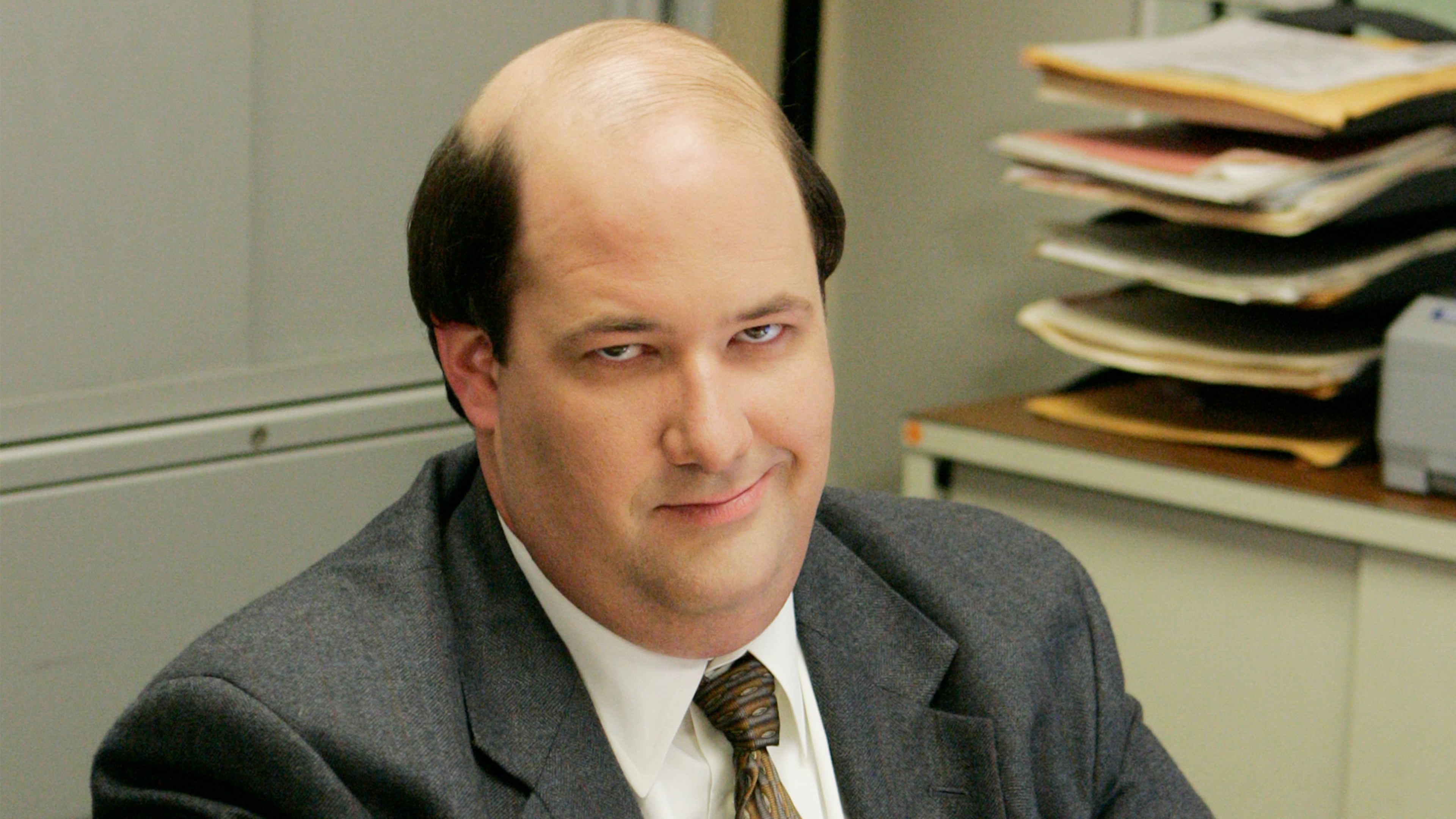A look behind ‘The Office’ oral history podcast, hosted by Brian Baumgartner (Kevin)

“The Office” was a big hit for NBC back in the day, but Netflix has brought its popularity to a new level of ubiquity, even among kids who weren’t alive when the show debuted 15 years ago.
Two of the actors — Jenna Fischer (Pam) and Angela Kinsey (Angela) — last year debuted a successful weekly podcast "The Office Ladies," a chronological rundown of each of the show's 201 episodes. In March, journalist Andy Greene released an oral history book about the show, which has received solid reviews.
Now an oral history podcast about "The Office," which aired from 2005 to 2013, is coming out exclusively on Spotify July 14. Former Atlanta resident Brian Baumgartner, who played dopey accountant Kevin Malone on all nine seasons of the show, is both executive producer and host.
The 12-part podcast was conceived and approved by the creators of the show, an “authorized” history in a sense that explores the show’s origins, how it overcame the stigma of being a knockoff of the cultish British version, why it became a hit at the time and what keeps the show relevant seven years after the last episode aired.
Baumgartner, a 1991 graduate of Westminster Schools and one year ahead of fellow “Office” mate and Westminster alum Ed Helms, said in an interview that he was shocked it survived its first season.
“The show was almost canceled like 47 times,” he recalled, crediting then NBC entertainment chief Kevin Reilly for championing the show despite skeptics like his boss Jeff Zucker, now president of CNN.
Baumgartner approached the podcast as if it were a true-crime series trying to “solve the mystery by talking to anyone associated with the situation.”
He interviewed every major player on the show, collecting about 120 hours of interviews. He spoke with Ricky Gervais, the co-creator of the U.K. series. He picked the brains of behind-the-scenes folks such as executive producer Ben Silverman (”Ugly Betty”), Greg Daniels (“Parks and Recreation”) and Mike Schur (“The Good Place”).
Another key player: Allison Jones, who cast the show’s pilot with a raft of unknown actors in 2004 who magically gelled as a unit.
Baumgartner spent three and a half hours with Steve Carell, who played awkward, people-pleasing boss Michael Scott. The darker, edgier Bob Odenkirk (“Better Call Saul”) almost got the part, but the producers ultimately chose the softer, kinder Carell, which altered the show’s entire feel compared to the more cynical U.K. version.
He also had lengthy talks with Fischer, John Krasinski (Jim) and Rainn Wilson (the very weird Dwight).
Fischer actually was a receptionist before she was booked for the role .”I’ve been practicing how to do this for the past six months!” she told Baumgartner during the podcast.
Krasinski thought he blew his chances before he had even auditioned because he told someone in the room that he hoped the person creating the show wouldn’t ruin a great British show as so many other had in the past. That person was show creator Daniels. “It weirdly was this bizarre blessing,” he said, because Daniels was already bemused by Krasinski when he actually did his audition.
Wilson competed against the likes of Judah Friedlander, Patton Oswalt and Seth Rogan for the part and the podcast even plays clips of their auditions. “It was a rare time when I knew this part was mine,” Wilson said on the podcast. “Nobody could do it better.”
Baumgartner later flew to Scranton, Pennsylvania, the fictional home of Dunder-Mifflin Paper Company and spoke to locals. And he even caught up with obsessive fan girl and teen phenom Billie Eilish, who sampled “The Office” in one of her songs.
He said he learned a lot of things that he knew nothing about despite being on the set the whole time.
“This will be satisfying for fans,” he said, “being able to hear us all together again.”
Baumgartner feels the show in retrospect — despite the use of now dated technology — carries a certain level of timelessness. The documentary construct, he noted, helps because “you never say a documentary is dated. ‘The Office’ is a very specific time and place and oddly, the more specific you are, the more universal it can be. That sounds counter-intuitive.”
Another topic he explores: “why are 11, 12, 13-year-olds so crazy about a group of middle-aged office workers?”
For children, he surmised that they themselves have spent inordinate amounts of time in classrooms full of people they’d never necessarily be friends with. So “The Office” feels very relatable that way, especially since its leader is so ultimately childlike himself.
He said this podcast is fundamentally different than “The Office Ladies.” He sees the oral history as a macro look at the show, a way to tie the show into the 2008 recession, the Hollywood writers strike and the world at large. In comparison, “The Office Ladies” digs into the minutiae of the show itself, noting for instance in detail the changing hairstyle and clothing choices of Mindy Kaling’s character Kelly Kapoor over each episode.
A real reunion of “The Office” has been talked about but is unlikely to happen. Baumgartner’s character, Kevin, eventually gets fired for his incompetence and opens a bar. “I’d like to think he’s still there behind the bar much happier than he was as an accountant with Dunder Mifflin,” he said.


